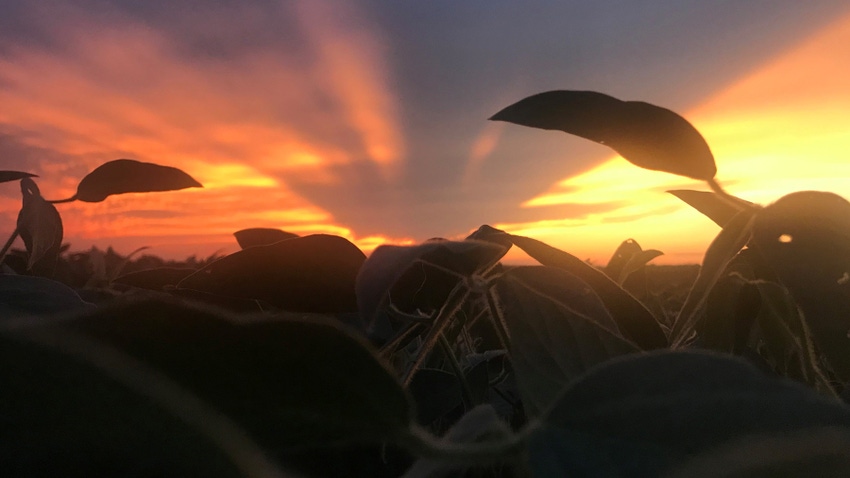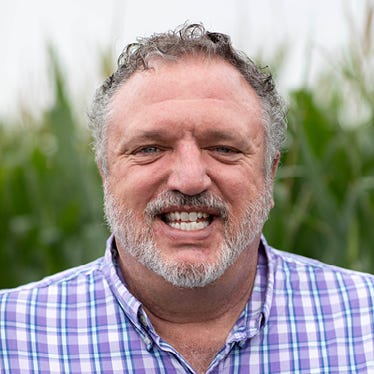January 2, 2024

The relationship between a landowner and their tenant farmer is a partnership rooted in mutual respect, shared goals and a deep connection to the land. I’ve navigated the complexities of this relationship from multiple perspectives, starting under the guidance of my father, a dedicated farmer, to overseeing the intricacies of institutional ownership.
Over the past 30 years of that experience, I’ve learned a thing or two about what landowners and farm managers look for in farmers:
Communication and relationship management. I can’t overstate the importance of communication and a strong working relationship between landowners and farmer tenants. A farmer who can engage in a dialogue that resonates with the landowner’s values and concerns is highly valued.
For many landowners, regular and transparent communication is a cornerstone of a good tenant relationship. They appreciate being kept informed about the various aspects of the farming operations on their land, including updates on key farming activities such as planting, harvesting, pest control and any significant maintenance or improvements. Those updates keep the landowner informed and involved, fostering a sense of partnership and trust.
How to do that and how frequently? That depends on the landowner. Some may prefer detailed, regular reports, while others might be satisfied with more general, less frequent updates. Understanding and adapting to these preferences is crucial for maintaining a positive relationship.
Landowner priorities. The ideal tenant from many landowners’ perspective is someone who not only provides a fair return on investment but also shares a deep respect for the land and its history. They should be capable of maintaining the land’s health and productivity, while also being attuned to the landowner’s emotional connection and legacy. This blend of practical skills, emotional intelligence and a shared vision for the future of the land is what makes a farmer truly stand out in the eyes of a landowner.
Financial expectations and lease types. The financial relationship between landowners and tenants in Illinois is shaped by a balance of traditional values and modern economic realities. Landowners seek both a fair return on their investment and the financial success of their tenants, with the choice of lease type reflecting their financial needs, risk preferences and the evolving landscape of agricultural practices.
The choice between these lease types often hinges on the landowner’s financial needs and risk tolerance. Those requiring steady, predictable income may prefer cash leases, while those who are more financially flexible and perhaps more connected to the farming process might opt for crop share or flexible leases. Successful tenant farmers are flexible in their lease arrangements on farms they rent.
Farming practices and stewardship. While there is a burgeoning interest in organic farming among some landowners, it still represents a relatively small fraction of the overall agricultural landscape. Most landowners are more focused on finding tenants who demonstrate a commitment to taking good care of the land, though not necessarily through strictly defined practices like organic farming. This broader approach to stewardship is often more appealing to landowners, as it aligns with their desire to see their land well-maintained and productive over the long term.
Lease terms and landowner objectives. The process of lease negotiation is not just about agreeing on what rent to pay next year. It is an opportunity for landowners and farmers to align their expectations and establish a foundation for a successful working relationship. It’s a time when both parties can discuss and agree upon the terms that will govern their partnership, ensuring that the lease is equitable and sustainable for both the landowner and the farmer.
Be open to and encourage a review of the landowner’s objectives for their farm, and use it as an opportunity to strengthen the relationship.
Maintenance and improvements. The responsibilities for maintenance and improvements should be clearly defined and agreed upon in the lease agreement. Regular maintenance is typically the farmer’s responsibility, while more significant improvements may require a different arrangement, potentially involving cost-sharing or other considerations. Having a farmer who treats the property as if it were their own is a trait many landowners want in a farmer.
Insurance and liability. Insurance and liability considerations are integral to the leasing arrangement between landowners and farmer tenants. Ensuring that the farmer carries adequate liability insurance is a key priority for landowners, providing protection against potential risks and liabilities. For the farmer, having this insurance is a critical aspect of their risk management strategy, safeguarding their operations and reinforcing their credibility as responsible and professional tenants.
Long-term goals and legacy. The long-term goals and legacy aspirations of landowners play a pivotal role in shaping their decisions regarding farmer tenants. For these landowners, their long-term vision often extends beyond immediate financial returns. They are invested in the preservation and enhancement of their land for future generations.
In some cases, landowners’ long-term plans might include eventual development or sale of the land. This possibility can influence their choice of tenant and the terms of the lease. For instance, they might prefer flexible lease terms that allow for easy adaptation to changing circumstances.
The long-term goals and legacy aspirations of landowners are crucial factors in their choice of farmer tenants. These landowners are looking for more than just a financial return; they seek partners who share their vision for the land’s future and are committed to its stewardship.
When all is said and done, landowners and farm managers want to work with a farmer they can trust — someone they can trust to take care of their property and to pay the rent. Trust doesn’t come automatically. It is something that is developed and earned.
About the Author(s)
You May Also Like






